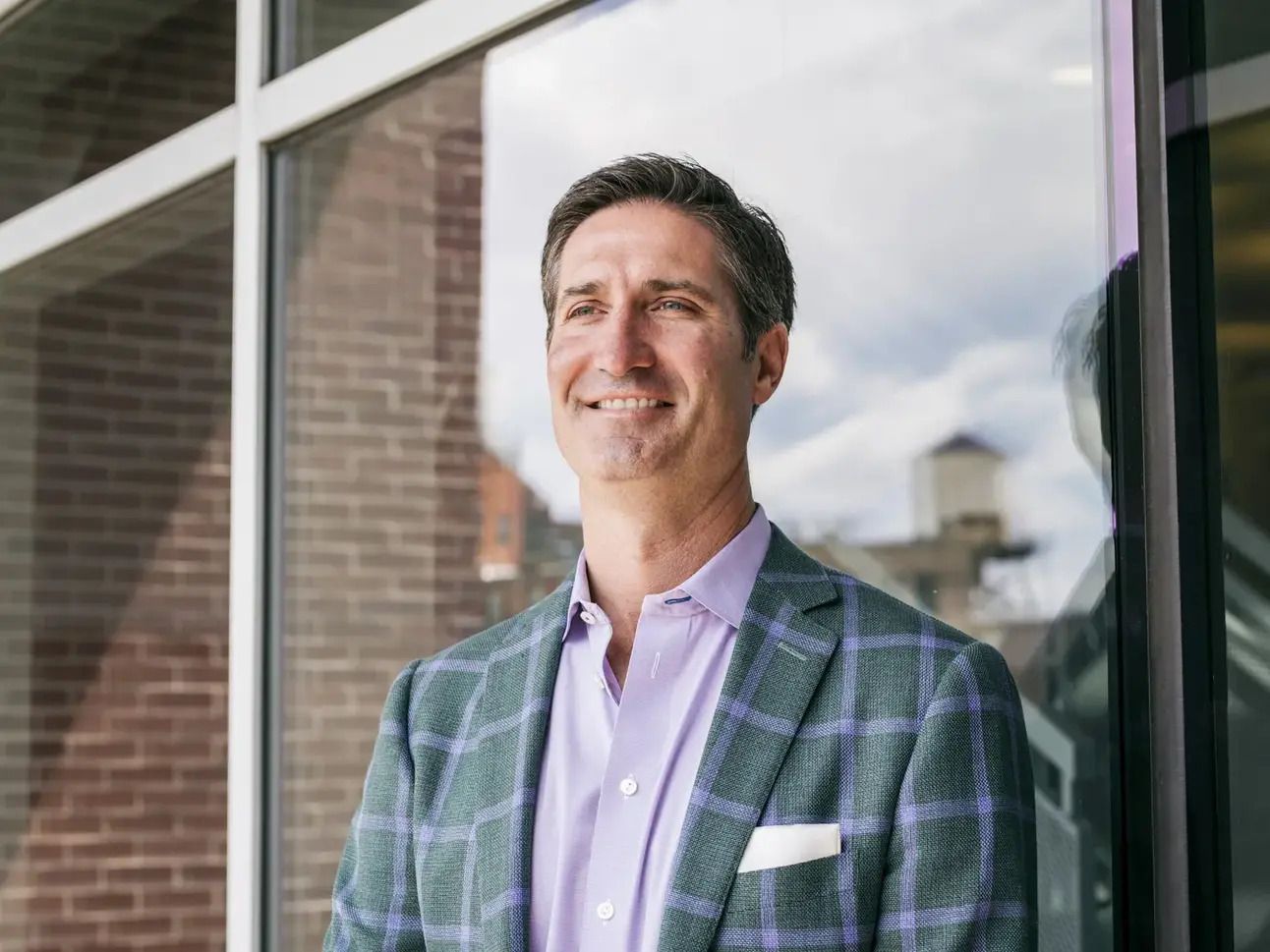- Need2Know, by Cheddar
- Posts
- 'Get back to the office,' says remote-working Starbucks CEO
'Get back to the office,' says remote-working Starbucks CEO
Also: We talked about Tesla's wild ride with 'New York Times' reporter Jack Ewing
Hello, Wednesday N2K’ers!
“Let them eat cake,” said Marie Antoinette. Actually, she said “Qu'ils mangent de la brioche!” and we’re not actually sure she ever even said that. Still, it’s a quote often attributed to her to illustrate a wealthy and out-of-touch aristocracy during a time of hardship for France’s peasants, who were starving at the time.
Meanwhile Starbucks $SBUX ( ▲ 4.22% ) CEO Brian Niccol, who was lured to the company last year from Chipotle $CMG ( ▲ 1.94% ) and paid more than $100 million last year, works remote from his California beach town. He commutes 1,000 miles to Seattle occasionally via private jet, but he has ordered his corporate staff to return to the office four days a week.
The company’s stock is up 27% over the past year, roughly three times that of the broader index $SPX ( ▼ 0.51% ) , although investor sentiment on the company is broadly qualified by Stocktwits as “neutral.” Let us know what you think about all this in today’s poll below 👇🏻
Meanwhile all the news you Need2Know today is this gripping, so read on…
—Matt Davis, Need2Know Chedditor
News You Need2Know
What’s the stock market up to, eh?
Companies mentioned in today’s newsletter
$SBUX ( ▲ 4.22% ) $CMG ( ▲ 1.94% ) $TSLA ( ▼ 3.78% ) $DIS ( ▲ 2.72% ) $SCHW ( ▲ 0.15% ) $GOOGL ( ▼ 1.96% )
Let them drink decaf. In the office. 4 days a week.
So, this Brian Niccol dude. He likes a tailored sport coat whose purple accents match his shirt. He has nice hair. But I have some questions.
I went to Starbucks the other day and ordered a “tall decaf Americano and a grande latte with oat milk.” They asked me my name; I said “Matthew.” They tried to charge me $18 for “two grande decaf Americanos” and eventually delivered the drinks to a guy called “Mafi.” Do they have hearing problems? Well, this is the third time in a row the Columbus Circle Starbucks has misheard “tall” as “two,” and I’ve been pronouncing it more clearly, even gesturing to the tall cups behind the bar, each time. Nevertheless I have a British accent, and it’s a tourist-heavy location. My sense is that the misunderstanding is not entirely unintentional.
Still, Brian Niccol:

Image; Benjamin Rasmussen / The New York Times, 2018
Is the new CEO God’s gift to Starbucks? Has he turned the chain around? Does he deserve his reputation as a miracle-worker? Or is he risking his reputation by asking his people to do as he says and not as he does?
Certainly his decision this week to mandate a four-day in-office work week for corporate employees while enjoying a remote work setup himself raises more questions.
“I wouldn't ask my employees to do something I'm not willing to do myself. I wish more supervisors shared this mindset and work ethic,” writes a commenter on the news on Instagram.
Niccol’s corporate-funded remote office, private assistant, jet travel, and residence in sunny California feel worlds apart from the rigid policies he’s enforcing on Starbucks employees slogging it out in rainy Seattle. Niccol’s justification for the changes — that “human connection” drives collaboration and innovation — might well be a tad tone-deaf when applied to his workforce but exempted for himself.
Still, what do you think? Today’s poll is below! Perhaps I’m tone deaf, and the share price is all that matters.
Song of the day: Geese: ‘Taxes’
Brooklyn-based indie rock band Geese have a new album out in September called “Getting Killed,” and “Taxes” is a single off of that. One reviewer says it provides an “almost gospel soundscape for a song that cries out in anguished self-loathing.”
Lols.
I rather like the lyrics, myself:
“If you want me to pay my taxes,
If you want me to pay my taxes,
You’d better come over with a crucifix,
You’re gonna have to nail me down.”
Free yourself from advertising forever!
Now you can sign up for an optional ad-free version of Need2Know! Subscribe for just $5 a month, or $50 a year, and you can continue to enjoy this reasonably high-quality newsletter uninterrupted. Bonus: The immense satisfaction that comes from supporting journalism*!
*This counts as journalism, right?
What’s behind Tesla’s wild stock price ride?
Jack Ewing has been a reporter for more than 40 years and covers the electric vehicle industry for the New York Times. We spoke with him about Tesla’s $TSLA ( ▼ 3.78% ) wild ride recently.
"Tesla's sales are going down much faster than the overall market,” he said. “They're losing market share."
A major worry is Tesla's underutilized factories. Ewing points out that "Your factories cost money. Your machines cost money whether you're using them or not, and so, if you're not using the factory to its full potential, that's very bad for profitability."
Adding to Tesla's woes is the fierce competition from Chinese automakers, particularly BYD, which has surpassed Tesla in electric car sales. Ewing noted, "BYD is coming out with new models like crazy. They get very good marks for quality and for technology. They have very good self-driving capability."
Musk's much-touted RoboTaxi service in Austin, a "huge bet" for Tesla's future, also received a cautious assessment. Ewing described the rollout as "kind of underwhelming" and observed "some hiccups. Cars stopping in the middle of intersections, doing things they're not supposed to."
Beyond business, Musk's political forays, including the launch of the "America Party," are a significant distraction. Ewing, though a business reporter, highlighted the historical challenges for third parties in the U.S. and questioned the impact on Musk's focus: "How much is this going to distract Elon from actually just running the car company?"
Looking ahead, Ewing's key insight for the next earnings call is blunt: "Is Tesla even going to report a profit with sales going down as much as they have?" With car sales being Tesla's primary revenue source, a continued decline could mean "a declining profit as well."
Today on the ‘gram: Walt Disney as a robot
Post of the day: He’s like a fine wine
Harrison Ford lands his first Emmy nomination at 83.
— Pop Base (@PopBase)
3:43 PM • Jul 15, 2025
Quote of the Day
I didn’t want my lifetime contribution to humanity to be making equity markets marginally more efficient.
Inflation rose in June on trade pressures
Inflation in the United States continued to heat up in June, as the Consumer Price Index rose 2.7% compared to the same time last year. The Bureau of Labor Statistics report attributed much of the acceleration to the tariffs.
“The new tariffs are another blow to any hopes for a Fed rate cut in the near term,” Kathy Jones, chief fixed-income strategist at Charles Schwab $SCHW ( ▲ 0.15% ) told the New York Times. “They want to see inflation nearing the 2% target, and this doesn’t particularly help,” she said of the latest data.
“The effects of tariffs are finally showing through in inflation, although still in a modest way, suggesting that businesses have so far absorbed a significant share of the impact,” Eswar Prasad, economics professor at Cornell University, told the Financial Times. He added: “This is unlikely to be tenable, especially if Trump follows through with his recent tariff threats.”
Should you check your 401(k) today?
👎️
No.
AI companies are headhunting on Wall Street
The AI industry is disrupting not just technology but also the financial sector, particularly by targeting Wall Street’s top quantitative analysts — specialists in math, physics, and data science who use their brains to develop trading strategies and make money. Now, firms like OpenAI, Anthropic, and xAI are aggressively recruiting the elite minds behind hedge funds at trading giants like Citadel and Jane Street. They’re offering multimillion-dollar compensation packages to lure them away.
These firms historically attracted top talent with colossal compensation packages, often starting at $600,000 for fresh graduates (for fresh grads? Woah! — Ed. (who graduated in 2020 and is now making $601,000 a year, obviously) and climbing into the millions for seasoned professionals. Now the explosion of AI valuations have shifted priorities for many quants. Sam Altman, CEO of OpenAI, has spearheaded this effort, hosting exclusive events and making bold pitches to Wall Street's quants. His message? Rather than shaving nanoseconds off trading speeds, these experts could contribute to groundbreaking advancements in AI.
"Optimizing ads at Google $GOOGL ( ▼ 1.96% ) gets boring,” one headhunter told Business Insider. “This is different."
Noam Brown, an OpenAI Researcher, wrote this on LinkedIn:
"I worked in quant trading for a year after undergrad, but I didn’t want my lifetime contribution to humanity to be making equity markets marginally more efficient. Taking a pay cut to pursue AI research was my best life decision. Today you don’t even need to take a pay cut to do it."
After a hard day at work, I expect Mr. Brown likes nothing more than to go out and get smashed on a bottle of spirits, eh?
Gen Z: Moving on from spirits?
Reports suggest Gen Z might be drinking less alcohol, but Tony Latham, president of North America at Bacardi, offers a more nuanced perspective. "Gen Z isn't stepping away from alcohol," Latham told us. “They're just choosing to re-engage on their own terms." In other words, this generation is "looking for quality, discovery, and experience over volume."
This shift isn't a rejection of alcohol, but a move towards "a much more mindful and intentional approach to alcohol consumption, looking for balance and memorable experiences,” he said. Bacardi is adapting by developing a cocktail strategy that aligns with this "moderate approach."
Examples include the Saint-Germain Hugo Spritz and Angels Envy's Peach Smash. Latham highlights that younger consumers are "looking to invest in those experiences," making festivals and elevated bar experiences important.
Sing it with me. 🎶 I believe the children are our future. 🎶
Poll of the Day: ‘Venti pink latte with extra whip for Marie Antonia the Vet?’
Is it fair for Starbucks CEO Brian Niccol to work remote while mandating that his staff return to the office 4 days a week? |
Poll Results: Some of you buy Bitcoin, and more of you do not buy bitcoin
We asked: Do you own any bitcoin?
You answered:
🟩🟩🟩🟩🟩🟩 No. I tend to agree with our president from 2019 when he said Bitcoin is “not money” and criticized it as “highly volatile and based on thin air.” Although admittedly that wasn't his final word on the subject, but I think he was right in 2019! (548 votes)
🟨⬜️⬜️⬜️⬜️⬜️ Yes. If it's good enough for institutional investors to buy, it's good enough for me to hold in my portfolio. (101 votes)
649 Votes via @beehiiv polls
 | Want more Cheddar? Watch us!Search “Cheddar” on Samsung, YouTube TV, and most other streaming platforms. N2K is the tip of of the cheeseberg for financial news, interviews, and more. |







